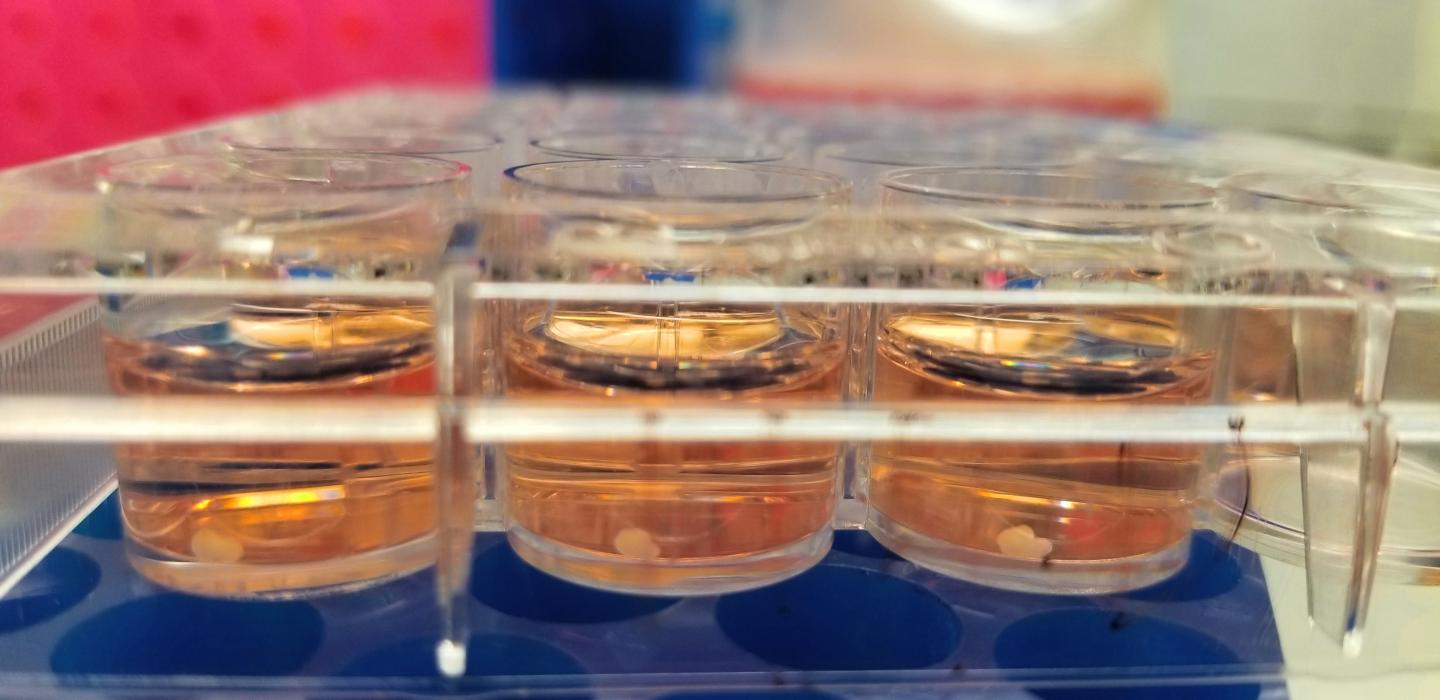A New Breakthrough in the Growth of Human Mini-Brains for Research

An image of oligortical spheroids in wells.
Study in a Sentence: Researchers have discovered how to incorporate oligodendrocytes, an essential brain cell type, into the growth of human "miniature brains-in-a-dish" derived from stem cells. These new brain organoids can model human brain structures more accurately because the oligodendrocytes allow for the formation of myelin—the insulating coating that protect nerves—and are critical for faster relay of nerve signals.
Healthy for Humans: The researchers used the organoids to test drugs that enhance myelin production and showed that the testing platform is an effective tool for predicting the safety and efficacy of such drugs. In addition, they generated organoids from patients with a rare fatal myelin genetic disorder called Pelizaeus-Merzbacher disease that recapitulate features of the disease and can be used to test potential therapies.
Redefining Research: Previous mini-brain models only contain two major cell types of the brain: neurons and astrocytes. The incorporation of oligodendrocytes allows human brain diseases to be modeled more accurately in a dish for research, especially for diseases that involve problems with myelination, such as multiple sclerosis.
References
- Madhavan M, Nevin ZS, Shick HE, et. al. Induction of myelinating oligodendrocytes in human cortical spheroids. Nature Methods. 2018. doi: 10.1038/s41592-018-0081-4








